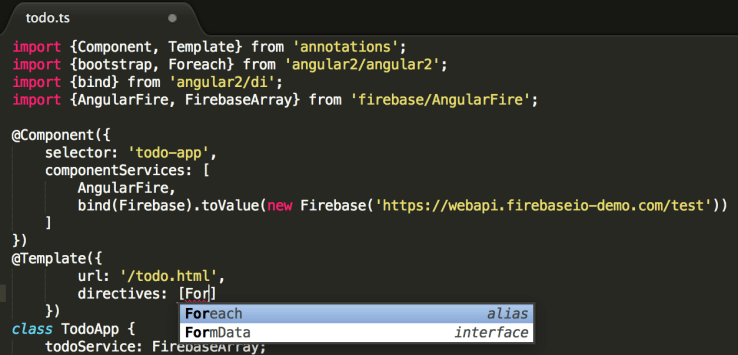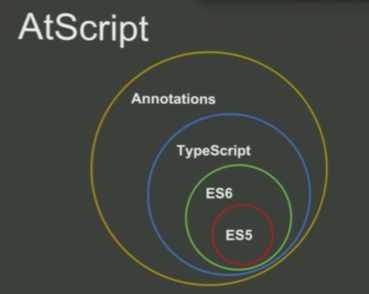Microsoft And Google Collaborate On Angular 2 Framework, TypeScript Language
Microsoft And Google Collaborate On Angular 2 Framework, TypeScript Language
 Here’s a partnership that may come as a surprise to many: Microsoft and Google are working together to help make Angular 2 — the next (and somewhat controversial) version of Google’s JavaScript web app framework — better.
Here’s a partnership that may come as a surprise to many: Microsoft and Google are working together to help make Angular 2 — the next (and somewhat controversial) version of Google’s JavaScript web app framework — better. Angular has been using its own AtScript superset of Microsoft’s TypeScript for a while now. TypeScript is
Microsoft’s attempt at extending JavaScript with features like type
annotations, generics and modules. Going forward, the two languages will
converge. Angular 2 will be written in TypeScript and developers will
be able to write their Angular 2 applications in this language,too.
Angular has been using its own AtScript superset of Microsoft’s TypeScript for a while now. TypeScript is
Microsoft’s attempt at extending JavaScript with features like type
annotations, generics and modules. Going forward, the two languages will
converge. Angular 2 will be written in TypeScript and developers will
be able to write their Angular 2 applications in this language,too.The AtScript language made its debut last October, but it looks like the AtScript name will be retired in favor of TypeScript.
Angular, at various times in its development, was written in plain JavaScript, Google’s own Dart language and AtScript (there are still separate Dart and JavaScript versions of Angular 1.x today). AtScript added features like introspection, as well as field and metadata annotations to TypeScript. TypeScript will now adopt these features, too, starting with the upcoming 1.5 release of the language, which will launch in beta within the next few weeks.
 “Working
closely with a rich library like Angular has helped TypeScript to
evolve additional language features that simplify end-to-end application
development, including annotations,
a way to add metadata to class declarations for use by dependency
injection or compilation directives,” Microsoft’s corporate vice
president of its Developer Division S. “Soma” Somasegar writes in
today’s announcement. “Both teams are looking forward to continuing to
move TypeScript and JavaScript forward together in the future, including
working with the ECMAScript standards body on the future of types in
JavaScript.”
“Working
closely with a rich library like Angular has helped TypeScript to
evolve additional language features that simplify end-to-end application
development, including annotations,
a way to add metadata to class declarations for use by dependency
injection or compilation directives,” Microsoft’s corporate vice
president of its Developer Division S. “Soma” Somasegar writes in
today’s announcement. “Both teams are looking forward to continuing to
move TypeScript and JavaScript forward together in the future, including
working with the ECMAScript standards body on the future of types in
JavaScript.”The announcement was made at the ng-conf Angular conference in Salt Lake City, Utah, today.
Comments
Post a Comment